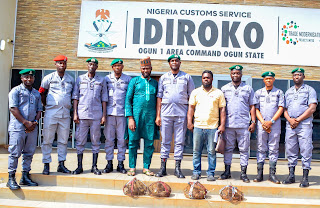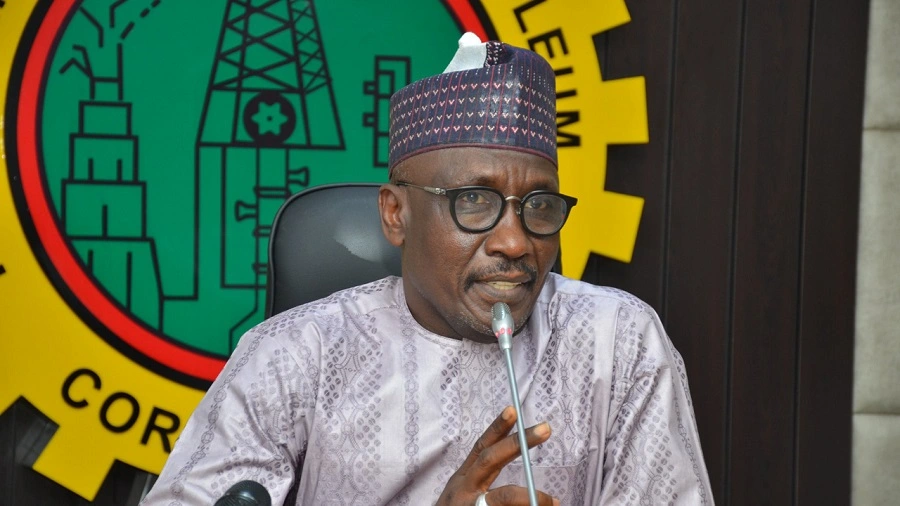The Nigerian National Petroleum Company (NNPC) Ltd is actively pursuing a $2 billion loan from European lenders, insiders have revealed.
The loan, intended to finance the state oil company’s operations, would be repaid through the allocation of 35,000 barrels of oil per day over the loan’s term.
According to Reuters, Mele Kyari, the Group Chief Executive Officer (GCEO) of NNPC, is in discussions for this oil-backed loan, which is critical for the company’s financial stability.
This development comes at a time when NNPC’s share of Nigeria’s oil production is limited, raising concerns about the impact on the company’s capacity to fulfill its obligations, including supplying crude to the Dangote refinery in exchange for naira.
READ ALSO: Group urges Dangote to respect NNPCL, other regulatory bodies
Nigeria’s current oil output is estimated at 1.3 million barrels per day, but due to the production sharing contracts (PSCs) governing offshore drilling, NNPC’s share is significantly less.
Much of Nigeria’s share is already tied up in loans and crude swap agreements to import petrol, which is sold domestically at around N700 per litre despite a landing cost of over N1,000 per litre.
Despite ongoing speculation, NNPC has consistently denied that petrol is still subsidized.
NNPC officials are currently in Europe seeking this new loan, with Standard Chartered Bank in the UK reportedly being one of their targets.
However, sources indicate that there has been no significant progress in securing the funds.
This isn’t the first time NNPC has turned to external lenders for support. In August 2023, the company secured a $3 billion crude-backed loan from the African
Export-Import Bank (Afreximbank) to stabilize Nigeria’s foreign exchange market.
That deal involved a pledge of 164.25 million barrels of crude oil, to be repaid over time through a special purpose vehicle incorporated in the Bahamas.
By January 2024, Afreximbank had already disbursed $2.25 billion, followed by an additional $925 million in June.
In recent weeks, tensions have escalated between the Dangote refinery and industry regulators, capturing the attention of stakeholders across Nigeria.
The refinery had struggled to source crude locally, but it has since been resolved that NNPC will prioritize local refineries, including Dangote’s.
READ ALSO: NNPC Ltd Group CEO, Kyari, denies investment in blending plant in Malta
This move is expected to save Nigeria over $610 million in foreign exchange per month on fuel imports, according to Zach Adedeji, chairman of the Federal Inland Revenue Service (FIRS).
On July 22, Aliko Dangote, the chairman of the refinery, made allegations against NNPC officials, accusing them of having a blending plant in Malta.
These plants, which cannot refine oil but can blend re-refined oil with additives to create finished products, are at the center of the latest industry controversy.
The Nigerian Midstream and Downstream Petroleum Regulatory Authority (NMDPRA) had earlier accused local refineries, including Dangote’s, of producing substandard petroleum products.
In response, Mele Kyari denied any involvement with a blending plant in Malta and dismissed claims that any NNPC employees were operating such a facility.
The House of Representatives’ joint committee on petroleum resources (downstream and midstream) is now investigating multiple aspects of the dispute, including the alleged production of substandard products, the issuance of licenses, and the importation of subpar petroleum products into Nigeria.

 News1 week ago
News1 week ago
 Agribusiness1 week ago
Agribusiness1 week ago
 News1 week ago
News1 week ago
 Football1 week ago
Football1 week ago
 Football5 days ago
Football5 days ago
 Football1 week ago
Football1 week ago
 Entertainment3 days ago
Entertainment3 days ago
 Football6 days ago
Football6 days ago

